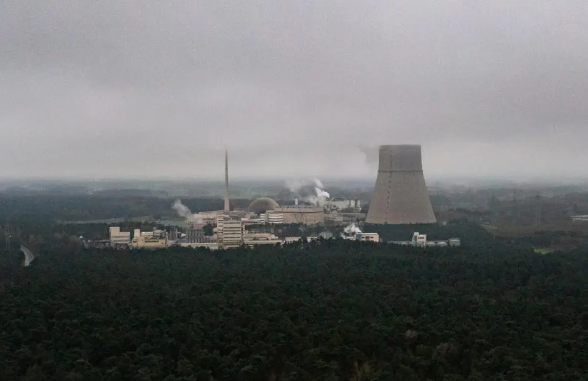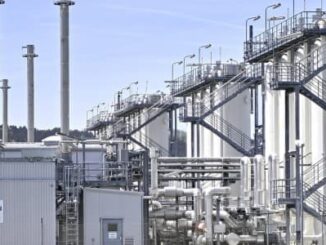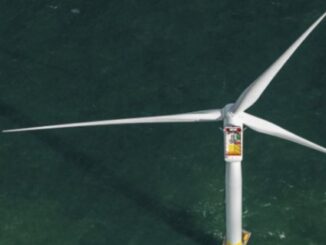
For generations, Germany has been a manufacturing powerhouse. The country was in the vanguard of the industrial revolution in the nineteenth century, establishing dominant positions in electrical components manufacturing and chemical production. Devastated by WWII, with the help of the Marshall plan the country quickly rebuilt its manufacturing base afterwards. It remained a top exporter of manufactured goods even as first Japan then China rose to become major exporters as well. The country has long enjoyed a well-deserved reputation for engineering prowess and high quality that was demonstrated across its huge manufacturing base.
Now that picture is changing rapidly, as German industry increasingly struggles to compete on the world stage. Particularly hard hit are its mighty chemical and heavy industry sectors, which are now in rapid decline. One of the main drivers is policies that have made energy costs skyrocket, and there Germany serves as a canary in the coal mine for other leading industrial nations.
Germany’s BASF is a bellwether for the state of the country’s industry. The company has long been representative of Germany’s manufacturing prowess, having grown since its founding in 1865 to encompass nearly 400 production sites in about 80 countries, while maintaining its headquarters and a sprawling multi-unit production facility in Ludwigshafen, Germany, which houses 200 separate plants and about 39,000 employees. But that site is where serious problems have arisen in the past two years. The company has permanently closed two ammonia units there and has idled other several other units as well because they’re no longer competitive, moves that cost 2,600 jobs. BASF’s sales were down 21.1% in 2023, and adjusted earnings fell 60.1%. In the last week, BASF announced a further $1.1 billion in cost savings efforts at Ludiwigshafen, which will lead to another round of job losses.
BASF has not been alone in cutting costs and jobs. German seamless pipe producer Vallourec closed its plants in Düsseldorf and Mülheim in late 2023. U.S.-based Trinseo closed a styrene facility in Böhlen and a polycarbonate line in Stade, causing fellow American firm Olin to shut down related methylene chloride and chloroform production in Stade as well, all due to high production costs. Germany’s Allnex closed its industrial coatings plant in Hamburg last year. And just days ago, Meyer Burger Technology AG announced it was discontinuing production of solar modules in Freiburg.
Many factors contribute to the skyrocketing costs in Germany for electricity and natural gas: Russia’s invasion of Ukraine and the resultant sanctions, as well as the destruction of Nord Stream pipelines, for example. But one of the biggest drivers has been Germany’s net-zero energy policy, Energiewende, and the country’s rapid move to variable renewables, wind and solar, for electric generation. They necessarily require backup generating capacity, since the wind doesn’t blow and the sun doesn’t shine all the time. That’s usually provided by fossil fuel or nuclear power plants, but Germany passed legislation in 2019 to shut down all its coal plants by 2038, and last year the country shuttered the last three plants in its once-formidable nuclear fleet (in 1990 nuclear provided a quarter of Germany’s electricity). As a result, the country has been forced to import electricity and natural gas at substantially higher prices. Germany has recently been delaying planned closures of coal plants and is now also planning new gas plants as well, but the damage has been done. Germany now has some of the highest prices for electricity in the world.
As a result, the entire German economy is in the doldrums. Growth forecasts for this year were recently slashed to just 0.2%, and as inflation is forecast to come in at about 2%, that implies actual economic contraction. Other indicators are also dire, with orders at German engineering firms and overall foreign investment dropping dramatically.
Here in the U.S., Germany’s industrial and economic woes have translated into some short-term gains, as part of the displaced German industries look to America seeking more favorable energy costs. For example, the solar module factory closure by Meyer Burger in Germany mentioned earlier was done to allow the company to focus on its new U.S. facilities.
The problem, however, is that the U.S. isn’t that far behind Germany in prematurely shutting down coal, gas and nuclear power plants in favor of VREs. Warnings about the dire potential consequences have been coming from America’s national and regional grid operators more frequently. For example, the Midcontinent Independent System Operator, which manages electric grids in much of the Midwest, several southern state, and part of Manitoba, Canada, issues a periodic “Response to the Reliability Imperative” document. In the executive summary of its most recent installment issued just last week, MISO’s CEO John Bear wrote, “Studies conducted by MISO and other entities indicate it is possible to reliably operate an electric system that has far fewer conventional power plants and far more zero-carbon resources than we have today. However, the transition that is underway to get to a decarbonized end state is posing material, adverse challenges to electric reliability. A key risk is that many existing ‘dispatchable’ resources that can be turned on and off and adjusted as needed are being replaced with weather-dependent resources such as wind and solar that have materially different characteristics and capabilities. While wind and solar produce needed clean energy, they lack certain key reliability attributes that are needed to keep the grid reliable every hour of the year. Although several emerging technologies may someday change that calculus, they are not yet proven at grid scale. Meanwhile, efforts to build new dispatchable resources face headwinds from government regulations and policies, as well as prevailing investment criteria for financing new energy projects. Until new technologies become viable, we will continue to need dispatchable resources for reliability purposes.”
Yet most of America is forging ahead with shuttering its dispatchable generators and adding more weather-dependent VREs nonetheless, with almost no regard to energy reliability or affordability. All that is occurring even as demand for electricity is on the rise and is expected to increase dramatically in coming years. Reshoring of manufacturing to the U.S. is picking up substantially, while the use of power-hungry computer applications using the Cloud and AI is skyrocketing. Now is exactly the wrong time to be decreasing generating capacity for electricity, yet that’s exactly what many of America’s state and regional grid operators are doing, as explained in great detail by grid expert and author Meredith Angwin in her recent book Shorting the Grid: The Hidden Fragility of our Electric Grid.
For the rest of the story Subscribe to Forbes:
ENB Top News
ENB
Energy Dashboard
ENB Podcast
ENB Substack



